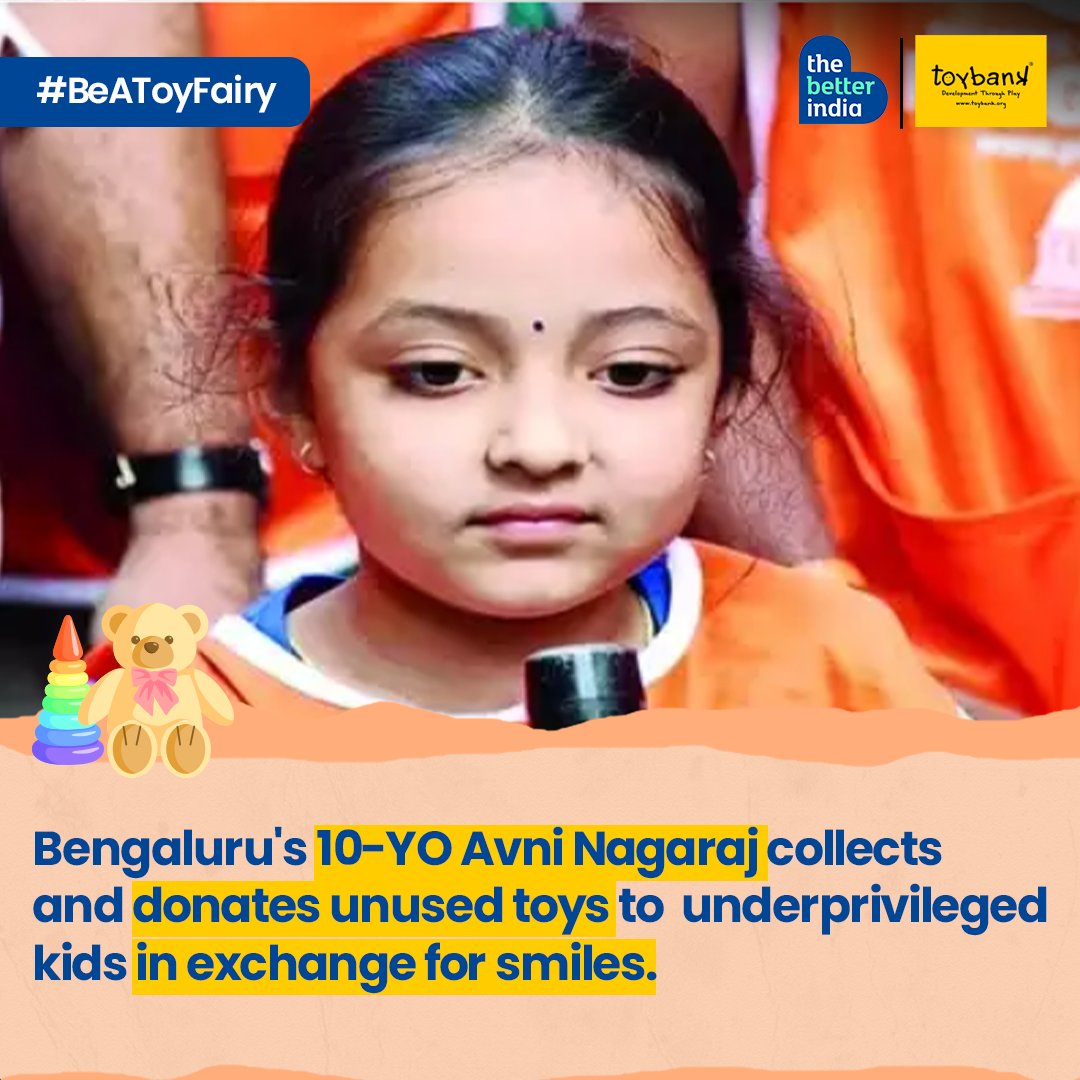
Learning from toys is a dream as they can't even imagine possessing one. Spread the joy and #BeAToyFairy to bring a smile to their faces this Children's Day.
#Childrensday #Kids #Love #HappyChildrensday #Child #HappyChildren #Donate #SpreadASmile
#Childrensday #Kids #Love #HappyChildrensday #Child #HappyChildren #Donate #SpreadASmile

Please Donate:
✔️All kinds of soft toys, cars, bikes, board games, and puzzles.
✔️Toys or games which are clean and in good condition. They may be used or new.
✔️Stationery items like crayons, books, colour paints, watercolours, etc.
✔️All kinds of soft toys, cars, bikes, board games, and puzzles.
✔️Toys or games which are clean and in good condition. They may be used or new.
✔️Stationery items like crayons, books, colour paints, watercolours, etc.
To make your donations, you can visit the drop-off points or courier at the address mentioned below:
Location 1:
Mahim West (Jagruti Industrial Premises)
105, Jagruti Industrial Premises, Mogul Lane, opposite Polycab, Mumbai, Maharashtra 400016
Timing: 10 am to 5 pm, Mon - Fri
Location 1:
Mahim West (Jagruti Industrial Premises)
105, Jagruti Industrial Premises, Mogul Lane, opposite Polycab, Mumbai, Maharashtra 400016
Timing: 10 am to 5 pm, Mon - Fri
Location 2:
Ghatkopar- West
(Little Oaks preschool and activity centre)
26, Vadhani Estate, Opp. Damodar park,
L.B.S Road, Ghatkopar West.
Timings: 10 AM to 1 PM, Monday to Saturday
Ghatkopar- West
(Little Oaks preschool and activity centre)
26, Vadhani Estate, Opp. Damodar park,
L.B.S Road, Ghatkopar West.
Timings: 10 AM to 1 PM, Monday to Saturday
Location 3:
Mulund-West (The Playce)
Marathon Maxima, Lal Bahadur Shastri Rd, near
Sonapur Signal, Bhandup, Moti Nagar, Mulund
Colony, Mulund West, Mumbai, Maharashtra
400080
Timings: 10 am to 6 pm, Monday to Saturday
Mulund-West (The Playce)
Marathon Maxima, Lal Bahadur Shastri Rd, near
Sonapur Signal, Bhandup, Moti Nagar, Mulund
Colony, Mulund West, Mumbai, Maharashtra
400080
Timings: 10 am to 6 pm, Monday to Saturday
For location details & directions, please contact on:
+917710859878 and +919664160908
+917710859878 and +919664160908
• • •
Missing some Tweet in this thread? You can try to
force a refresh










